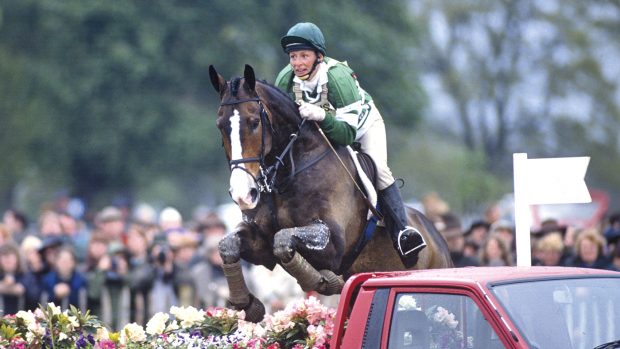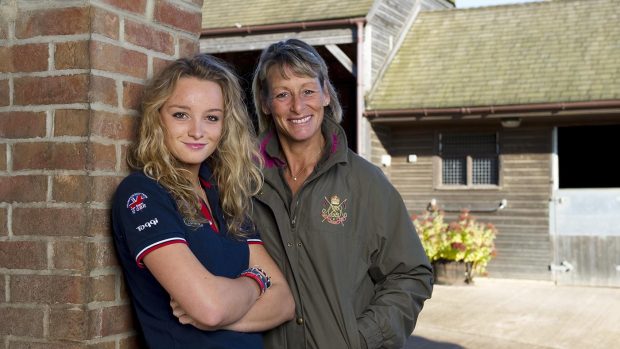Riding and competing successfully are all about creating a solid partnership with your horse. Mary King bases hers on these 10 tried-and-tested principles, which you can find in her latest book 'Mary King My Way: How I train for success'
1. Patience and calmness
Be methodical in your teaching. Repetition makes for true understanding. You must be black and white in your training principles as to what is right and what is wrong. Consistently correct mistakes and reward the right response with your voice and/or a pat when your horse produces good work.
2. Understanding and coping with tension
Tension can be caused by a variety of reasons — excitement on the part of the horse, anticipation of the work ahead, nervousness, not trusting the rider. Therefore, find ways of easing the pressure for your horse and helping him to relax — perhaps through lots of steady work, hacks and plenty of turnout. A tense horse will be much happoer to be out 24/7 and ideally with a calm companion.
Continued below…

19 signs you’re an incurable eventing nut
Are you so crazy about eventing it fills every area of your life? Read on to find out if you’re
3. Be thorough
Horses like to have a routine so make sure your horse has his — for example, feeding on time and exercise. Make sure that you’re organised in your day-to-day running of the yard, that you’re on top of paperwork and competition entries, fitness work for you and your horse, and preparation for events.
4. Effective riding
Try not to let the nerves take over as that can affect your riding, turning you from a positive partner to a passive passenger. Your horse needs your support and guidance so effectiveness of the rider is all-important.
5. Sensitivity
Remember, horses are all very different, so be sensitive to their individual needs. Some require a much more gentle approach, others you can be firmer with — it all depends on their character.
6. Coping with the lows
Difficult though it may be at the time, try to take a positive out of a negative situation. In eventing, you have to be able to cope with the lows if you want to continue eventing and compete for a long time. And don’t let yourself get too low in the lows. Simply work out what went wrong, why it went wrong, how you can make it right and how it could have been prevented. Then enjoy the good times!
7. Dedication
Are you prepared to get out there and work, whatever the weather and however you feel?
8. Be open to criticism
As a rider, always be aiming to improve and find a trainer you click with. Even at my age, I realise that I can always learn more. I personally love it when people tell me that I’m not sitting up straight or my reins are too long. I don’t take offence, I’m happy for people — especially my trainer Ferdi Eilberg — to point things out that might make a difference.
9. Positive attitude
Each day, work at being positive in everything you do, especially at events. Try to keep on top of your nerves, don’t dwell on the bad points — and smile!
10. Choosing the right horse
Don’t be too proud and persist with a horse who’s not living up to your dreams. If a horse you’ve bought — who you thought would be top class — is not enjoying the work and not performing consistently well for the level of training he’s at, be prepared to bite the bullet and sell him on to someone who’s less competitive and happy to compete at the lower levels. Keep looking for that right horse — there will be one out there for you.
This is an extract from Mary King’s latest book ‘Mary King My Way: How I train for success‘.
Mary opens her doors to reveal the formulas she uses on a daily basis and how they apply to every aspiring equestrian — from the working rider enjoying the grassroots levels through to those dreaming of representing their country.
Price: £25



